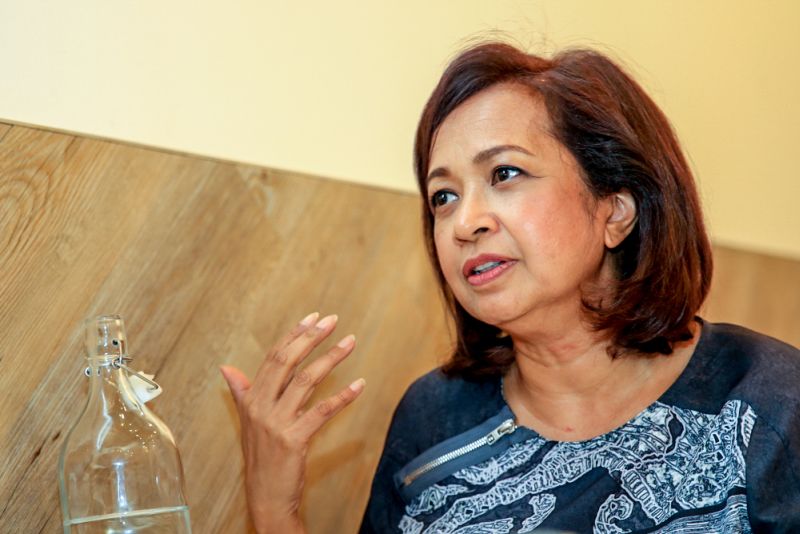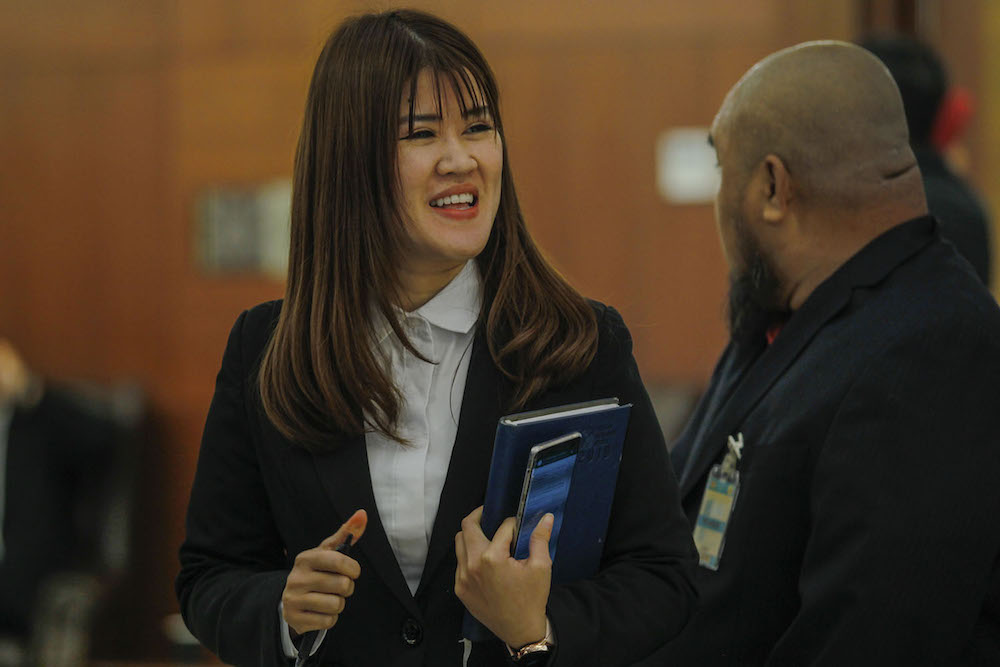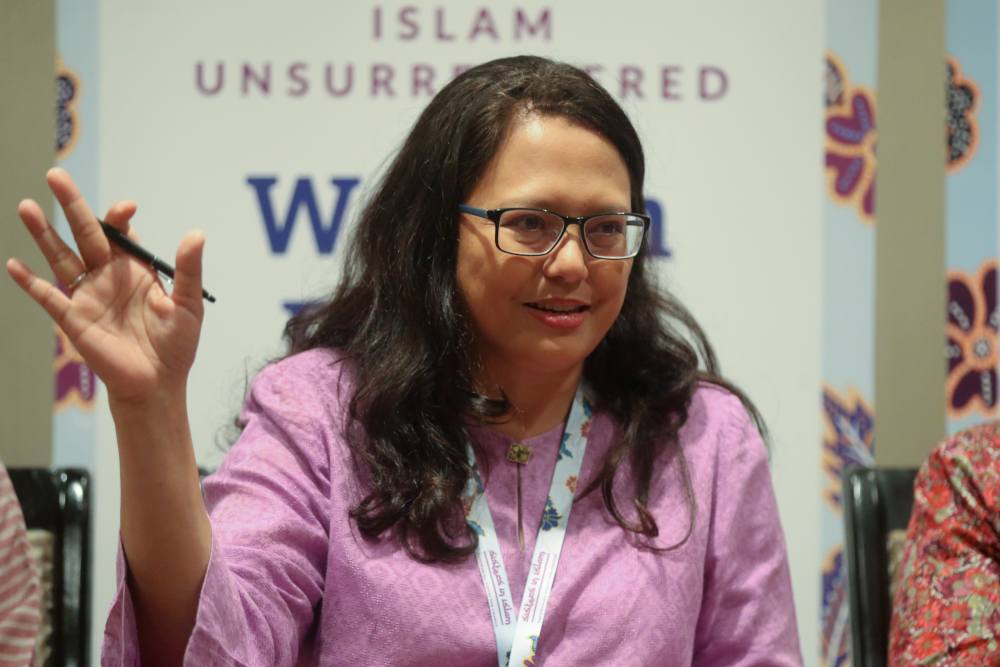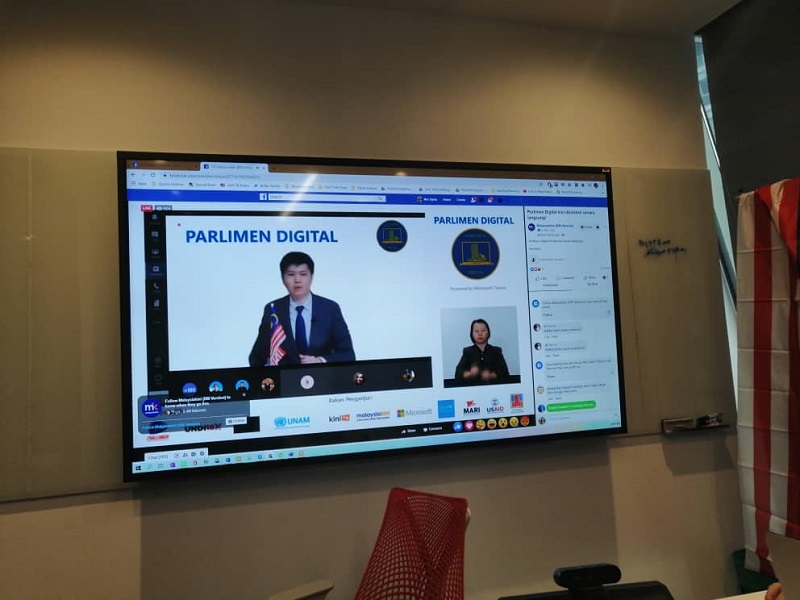KUALA LUMPUR, July 5 — Malaysia’s youth were today praised for their performance in Parlimen Digital for showing how MPs should behave in the Dewan Rakyat and for their well-researched and inspiring speeches, as well as for proving that holding online parliamentary sessions for all the country’s 222 MPs is feasible and possible.
Diversity and youthful
In the Parlimen Digital event hosted online over the past two days, its co-organiser Undi18’s co-founder Tharma Pillai told Malay Mail that the 30.18 per cent of the 222 representatives in the virtual Parliament for youth are women, with diversity also seen in the representatives with those from the OKU community, Orang Asli community and Orang Siam community.
According to Parlimen Digital numbers, 64 per cent of the Sabah and Sarawak seats went to those from the indigenous community.
For Parlimen Digital, which was open to candidates aged between 15 and 35, the representatives that were eventually picked for the 222 seats had an average age of 21. As a testament to their youth, 58 per cent of them were not eligible to vote in the 14th general election in 2018, he said. (At that time, the voting age in Malaysia was 21 years old.)
The youngest Parlimen Digital participant was Bintulu representative Marscella Ling Michael Ling aged 15, while the oldest was aged 33, Tharma said.

Youth hailed
When contacted, social activist Datin Paduka Marina Mahathir told Malay Mail that she was very “impressed” by Parlimen Digital as it had proved that it is completely possible to carry out parliamentary proceedings virtually.
“That’s what they set out to prove when the government gave the Covid excuse not to have Parliament in June. We’ve all been working online during MCO after all,” she said, referring to the movement control order (MCO) that controls activities during the Covid-19 pandemic as well as the deferred Parliament proceedings.
Marina said she was also impressed by the content of the speeches given by the youth representatives, which she described as “so much more intelligent and real than anything we’ve ever heard in the actual Parliament”.
“And how not to be impressed by all these youth? They have taken their roles very seriously, have prepared well and have shown great passion to put forward the issues they are advocating for. No nonsense, no inappropriate jokes. They have set the bar very high for Parliament and I suspect we’ll all be making comparisons with real MP behaviour from now on,” she said.
Marina acknowledged Parlimen Digital’s efforts to ensure 30 per cent of the representatives are female, naming the female representatives for Selayang, Bintulu, Padang Besar and Batu as being some of the outstanding ones.
“Also, Sabah and Sarawak were well-represented and it was good to see them put forward issues specific to their areas. Plus, the issues of mental health among youth, the need for better digital access, people with disabilities and migrants and refugees. It makes me weepy actually, to see what is possible if only we gave youth the space compared to what we see now,” she said.

Prominent lawyer and activist Datuk Ambiga Sreenevasan on Twitter praised the youth in Parlimen Digital for their exemplary behaviour with no racist or sexist remarks made.
When contacted, Ambiga told Malay Mail that she was very impressed with how prepared the Parlimen Digital representatives were, as well as their ideas and the way they delivered their speeches, also complimenting them for being fully engaged and engaging.
“They took it seriously, were focused and responsible in what they said. I was impressed with how much effort they had put into researching the issues. It confirms we were right to lower the voting age to 18!
“I would say that many of their suggestions have merit and should get the attention they deserve. It was also refreshing because suggestions, that would in our Parliament have been infected by the politics of the day and derailed, saw mature treatment by the digital Parliament representatives.
“I would give this venture a big thumbs up and applaud everyone who came up with the idea, and who were involved in executing it. What a breath of fresh air! Finally, I hope that the authorities will refrain from questioning these youth. The authorities need to understand that not everything is about PH or PN. The digital Parliament gives me hope,” she said.
On Twitter, activist Datuk Hartini Zainuddin praised the youth representatives: “I watched our young #ParlimenDigital reps with so much pride and awe. Articulate, poised and smart. There is hope for our country. Something better, smarter and good for our country — intelligent thoughtful dialogue. Leave them alone. We need them. I stand in solidarity.”
Also on Twitter, Dr Arvinder-Singh HS tweeted: “Great speech by YB Klang. She touched on a lot of major issues-women in our national workforce, and on how domestic violence and sexual harassment have been major issues for our ladies to work/return to work. Wow. Simply amazed with these YBs. Like seriously. Wow. Inspired.”
What the old and young MP said
Langkawi MP Tun Dr Mahathir Mohamad, who is a former prime minister and happens to be the oldest MP at age 94, today also shared how impressed he was with the initiative shown by youth in Parlimen Digital and also how they had objectively discussed and debated on the motions brought forward.
“This proves that in whatever situations including when faced with the Covid-19 pandemic, Parliament sittings can be held through digital platforms by tele-conferencing without having to be present in the Dewan Rakyat,” he said in a brief Facebook post, adding that he believes that the Parlimen Digital initiative would provide opportunities for youths to deliver speeches and interact in a healthy manner besides also identifying youths who have the potential to be leaders.

Sandakan MP Vivian Wong, who last year became the youngest female MP in the current Parliament when voted in at the age of 30, said she was impressed with the 222 “digital YBs” for coming together over these two days to debate on issues such as youth unemployment in Malaysia, social mobility for the younger generation, as well as a post-Covid-19 education system and mechanism to enable more effective learning amid compliance with all required standard operating procedures.
“This clearly shows that age is not a hindering factor for quality engagement in national issues. It directly justifies that PH government to lower the voting age from 21 to 18 is a right move.
“What is more impressive is their conviction and determination to represent their ‘constituency’ and bring the best to the table for discussion. I hope this will bring a new narrative to our political scene and make Malaysia a better country for all of us,” she told Malay Mail when contacted.

Spotlight on reality to meet people’s needs
Rozana Isa, executive director of women advocacy group Sisters in Islam (SIS), hailed Parlimen Digital as a positive and constructive initiative, noting that it had shown that young people when given the platform would not only “rise to the occasion and challenge but that they made sure that their proposals spoke to the lived realities that they and their community know, care about and experience”, which she said was “very powerful”.
“Parlimen Digital has successfully created a platform that showcased young people in Malaysia who have so much potential to contribute to the nation. Yes, this is a controlled platform devoid of the need to toe the line of party politics and perhaps, that is something that we should pick up and think about in terms of the urgent need to shift or create a different political environment that meets the need of the people instead of meeting the needs of those in power — it may not happen immediately but we shouldn’t be pessimistic about this and rain on their parade.
“As Parlimen Digital has shown us all today, when there is a will, there is a way. Let young Malaysians take the lead,” she said.

DAP’s Kampung Tunku state assemblyman Lim Yi Wei, who had given advice to some of the youth representatives participating in Parlimen Digital, said the programme has dispelled the myth that youth are uninterested in politics.
Having personally encouraged women to apply for the Parlimen Digital programme instead of second-guessing and underestimating their own abilities, Lim said she was happy that Parlimen Digital had achieved 30 per cent female representation.
“At the same time, I’m conscious that election outcomes are quite different from the selection of female PD YBs. However, PD has been a good platform to normalise and mainstream vocal female representation in politics and public discourse, and we can see good feedback on the women YBs’ debates. The YBs formed a women’s issues caucus using Telegram before 4 July. Male YBs also joined in. This is a good indicator,” she told Malay Mail.
She also complimented Parlimen Digital’s organisers for giving voice to the east Malaysian representatives, also sharing her observation of how these participants had showcased their culture by wearing their traditional costumes and used Sabahan or Sarawakian-themed virtual backgrounds during the online proceedings.
“It’s a reminder that much youth dialogue has been Malaya-centric. Last year, I organised a Sarawak-centric forum in PJ featuring YB Mordi Bimol (MP Mas Gading) and YB Kelvin Yii (MP Bandar Kuching) to reach out to Sarawakians living in the Klang Valley. Many thanked me, because they felt like they didn’t have a platform to engage with their MPs from back home,” the Selangor representative said of the event that had featured two Sarawakian MPs.




















